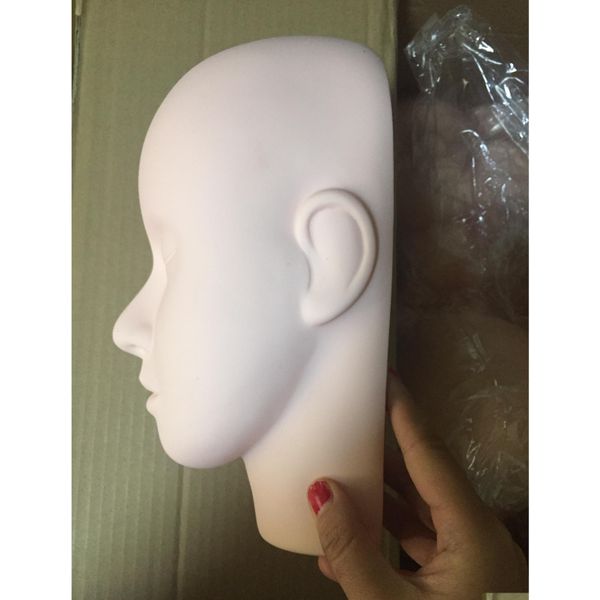Rochdale's Pioneers of Worker Education: The WEA Class of 1908
Description
At the beginning of the 20th century, many working men and women in Rochdale, as in so many industrial towns across the United Kingdom, were eager to build on the knowledge they had of the world. They wanted to learn, not just about science or literature but about their immediate industrial experience and their social and political place in it. Their cries for knowledge were heard, and men of learning from the Co-operative Movement and from the universities came forward to help them with educational courses that met their intellectual, spiritual and political needs. At the forefront of this support rose the Workers Educational Association (the WEA) but it needed a town and a group of students to carry out its great ‘experiment.’ Rochdale was chosen, for its radical history, its network of educational organisations, its nonconformist zeal and its commitment to learning. In 1908 the town hosted the first WEA tutorial class in the country and recruited one of the great socialist thinkers of the day in R H Tawney to lead, and in the end to be led by its worker students. This book tells the story of how the WEA tutorial class came into being, the social situation faced by those who came forward for study, who the students were and what they went on to become. Drawn from the mills and often the poorest neighbourhoods in Rochdale, this first group of students were indeed pioneers of worker education. From a photograph of the first tutorial class of 1908, Gary Heywood-Everett has identified and celebrated individual students, discussed their aspirations, looked at what they did for a living and interviewed some of their relatives. Not only does he discuss the reason why Rochdale was chosen as the site for this great experiment in worker education but also asks what motivated the first students to join and, following their experiences, how they used their knowledge.
Price history chart & currency exchange rate
Customers also viewed

$67.85
Рабочий клапан крышки люка MCG7-063Z45-2 ручной направленный клапан MCG7-063Y21-2 для использования в корабе
aliexpress.ru
$27.79
2,4G 1:24 Автомобиль с дистанционным управлением для дрифта для мальчиков, подарок 4WD, высокоскоростной радиоуправляемый гоночный автомобиль с подсветкой, сменные шины, суперкар, игрушки
aliexpress.ru
$29.28
GD10PJT60L2S GD15PJT60L2S GD20PJT60L2S GD30PJT60L2S GD10PJX65L2S GD15PJX65L2S GD20PJX65L2S GD30PJX65L2S
aliexpress.ru
$233.88
Автоматическая всплывающая складная оксфордская водонепроницаемая двухслойная уличная палатка для кемпинга, портативная непромокаемая солнцезащитная быстрооткрытая складная палатка
aliexpress.ru
$6.80
Встраиваемые светодиодные потолочные светильники COB с регулируемой яркостью Ультратонкие точечные светильники AC85 ~ 265 В Узкий угол луча 3 ° 8 ° 15 ° Внутреннее освещение
aliexpress.ru
$9.80
Мини-пылесос для офисного стола, пыли, домашний настольный подметальный пылесос, милый портативный пылесос-робот для дома
aliexpress.ru
$0.94
Doll Collar Lace Fake Collar Pearl Dress Decorative Shoulder Decoration Shirt Collar Clothes Accessories Detachable Shawl
aliexpress.ru
$23.63
Soft Kitchen Mats Home Living Room Carpets Kitchen Floor Mat Living Room Bedroom Carpet
aliexpress.com
$42.83
Carbon Fiber ABS Front Bumper Mesh Center Grille Grill Moulding Strips Cover Trim for
aliexpress.com
$1.71
1Pcs New Plush Simulation Mouse Cat Toy Bite Resistance Plush Mouse Cat Scratch Interactive Palying Toy Mouse Toy For Cat Kitty
aliexpress.com
$67.69
Комплект постельного белья Хлопковые Традиции Двухспальный 175x215 Персиковый (SE012_двуспальный)
skidka.ua
$70.72
SPEEDWOX Выпрямляющие плоскогубцы Выпрямляющие плоскогубцы Кусачки для торцов с заподлицо Кусачки для торцов с кусачками Инструмент для резки проволоки Кусачки для торцов с большим расстоянием из нержавеющей стали
joom.ru
$162.92
Li Ning однотонная длинная толстая ветрозащитная теплая хлопковая куртка с капюшоном мужские куртки черного цвета AFMS013-1 M
joom.ru
$247.63
Мужские кроссовки adidas Pharrell x Tennis Hu Dip-Dyed Yellow Pyrite Chalk-White DB2860
joom.ru
$112.59
le cagole luxury designer 26cm high bag quality le cagole shoulder bags motorcycle half crescent cross body with coin purse rivet leather ha
dhgate.com
$20.53
boys and girls breathable seven color children's sneakers small mesh bag volcanic sneakers, Black
dhgate.com
$13.88
Family Look Mothers Day Girls Dresses Mom And Daughter Equal 2022 Autumn Parent Child Matching Outfits Clothes For Kids Apparel
aliexpress.com
$69.99
luxury brand sandals designer slippers slides floral brocade genuine leather flip flops women shoes sandal 68, Black
dhgate.com
$42.49
2021 new japanese harajuku vintage gothic lolita es black red long sleeve chinese style cheongsam collection dr8n, White
dhgate.com
$53.01
men's velvet sweater men's 2021 winter youth trend casual hooded sweater men's lamb velvet jacket
fordeal.com
$240.65
wall clocks retro american industrial wind clock european style personalized decoration living room creative home decore
dhgate.com
$44.47
sandals 2021 summer rhinestone high heel female heels all-match large size small and slippers, Black
dhgate.com
$3.01
2Pcs/Set Minimalism Letter Layered Chain Necklace for Women Street Style Girls Silver Color Long Choker Collar Pendant Necklaces
aliexpress.com
$22.83
autumn fashion solid blouse women shirt o neck irregular loose print pullover women wholesale z4, White
dhgate.com
$76.03
diy baby toys large size rainbow stacker wooden toys for children learning building blocks creative montessori educational toys 1019
dhgate.com
$6.91
yoga pants butt lift tight movement comfortable quick dry tight pants fitness four colors, Black;white
dhgate.com
$71.99
sequins denim jacket women bomber jacket fashion long sleeves coats vintage hippie jeans jacket colete feminino b489 y191014, Black;brown
dhgate.com
$0.56
disposable with anti k mask 95 breathable n non designer facial adjustab droplets earloop, woven 3-layer awish maskfa thick mask masks wsah
dhgate.com
$17.23
o50y women kangaroo satin long band sock cap sleeping hat hair care bonnet wide elastic hair floral hat baggy protect beanie chemo new kango, Brown;gray
dhgate.com
$6.91
preschool kid pretend to bathe duck early educational simulated bathtub play sets baby bathing toy set pretend play
dhgate.com
$14.75
delicate soft pvc half mannequin heads for target practice head-form mannequins training head mould practice model he qylfer sweet07, White
dhgate.com
$17.87
casual fashion pants ladies print tie dye elastic high waist trousers bell bottoms flare pants women slimming casual 20201, Black;white
dhgate.com
$102.81
factory supplier luxury mens watch 40mm 116718 green dial full gold strap ceramic bezel automatic mechanical movement watches wristwatch, Slivery;brown
dhgate.com
$3.30
djxfzlo brand design polarized sunglasses men women driver shades male vintage sun glasses men spuare mirror summer uv400oculos, White;black
dhgate.com












